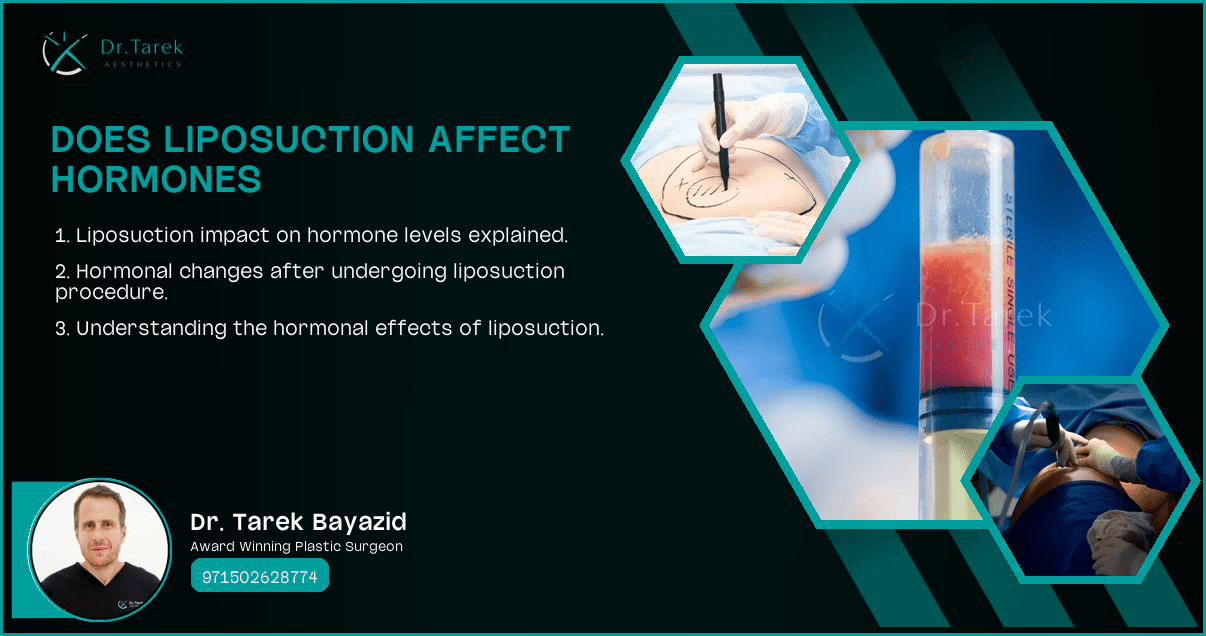Can Liposuction Affect Your Hormones
Liposuction is a popular cosmetic procedure aimed at removing excess fat from specific areas of the body. While its primary goal is to enhance physical appearance, many wonder if liposuction can affect your hormones. This article delves into the relationship between liposuction and hormonal changes, providing a comprehensive overview based on scientific research and expert insights.
Relationship Between Fat Tissue and Hormones
Fat Tissue as a Hormonal Regulator
Fat tissue, or adipose tissue, is not just a storage site for excess calories. It plays a crucial role in hormone production and regulation. Adipose tissue secretes various hormones, including leptin, adiponectin, and resistin, which influence metabolism, appetite, and insulin sensitivity.
- Leptin : Regulates energy balance by inhibiting hunger.
- Adiponectin : Enhances insulin sensitivity and has anti-inflammatory effects.
- Resistin : Linked to insulin resistance and inflammation.
Potential Hormonal Changes After Liposuction
Liposuction removes fat cells, which can potentially alter the hormonal balance in the body. The extent of these changes depends on the amount of fat removed and the specific hormones involved. Some studies suggest that liposuction can lead to temporary hormonal fluctuations, but the long-term effects are still under investigation.
Book A Consultation With Dr Tarek Bayazid
Top-rated Plastic Surgeon For Liposuction in Dubai
Installment Plan Available
- Temporary fluctuations : Hormonal levels may change immediately after the procedure.
- Long-term effects : Ongoing research is needed to understand the prolonged impact.
The Science Behind Liposuction and Hormonal Balance
Fat Cells as Endocrine Organs
Fat cells, or adipocytes, function as endocrine organs by secreting hormones that regulate various physiological processes. This endocrine function means that any alteration in fat tissue, such as through liposuction, can potentially impact hormonal balance.
- Endocrine function : Fat cells release hormones that affect metabolism and appetite.
- Impact of removal : Removing fat cells can disrupt this hormonal balance.
Hormones Produced by Adipose Tissue
Adipose tissue produces several hormones that play vital roles in the body’s metabolic processes. These hormones include leptin, adiponectin, and resistin, each with distinct functions and effects on health.
- Leptin : Influences hunger and energy balance.
- Adiponectin : Improves insulin sensitivity.
- Resistin : Associated with inflammation and insulin resistance.
Hormonal Effects of Liposuction on Specific Body Areas
Abdominal Liposuction and Insulin Sensitivity
Abdominal fat is closely linked to insulin resistance and metabolic syndrome. Removing fat from this area through liposuction can potentially improve insulin sensitivity, as evidenced by some studies.
- Improved insulin sensitivity : Reduction in abdominal fat can enhance insulin response.
- Metabolic benefits : Potential decrease in risk factors for metabolic syndrome.
Thigh Liposuction and Estrogen Levels
Thigh fat is a significant source of estrogen production, especially in women. Liposuction in this area may affect estrogen levels, although the extent and duration of these changes are still being studied.
- Estrogen production : Thigh fat contributes to estrogen levels.
- Potential impact : Liposuction may alter estrogen balance.
Short-term vs. Long-term Hormonal Impacts of Liposuction
Immediate Post-operative Hormonal Fluctuations
Immediately after liposuction, patients may experience temporary hormonal fluctuations. These changes are usually short-lived and stabilize as the body adjusts to the new fat distribution.
- Temporary changes : Hormonal levels may fluctuate right after surgery.
- Stabilization : Hormones typically return to normal levels over time.
Long-term Hormonal Adaptations
The long-term hormonal impacts of liposuction are less clear. Some studies suggest that the body may adapt to the new fat distribution, potentially leading to lasting changes in hormone levels and metabolic health.
- Adaptation : The body may adjust to the new fat distribution.
- Lasting changes : Potential for long-term hormonal effects.
Factors Influencing Hormonal Changes After Liposuction
Amount of Fat Removed
The amount of fat removed during liposuction can significantly influence hormonal changes. Larger volumes of fat removal may lead to more noticeable hormonal fluctuations.
- Volume of fat : More fat removal can lead to greater hormonal changes.
- Impact on hormones : Larger procedures may have more significant effects.
Patient’s Overall Health and Lifestyle
A patient’s overall health and lifestyle also play a crucial role in how their hormones respond to liposuction. Factors such as diet, exercise, and pre-existing health conditions can influence the extent of hormonal changes.
- Health status : Pre-existing conditions can affect hormonal response.
- Lifestyle factors : Diet and exercise impact hormonal balance.
Does Liposuction Affect Menstrual Cycle?
Liposuction can potentially cause temporary menstrual irregularities. The stress of surgery and changes in hormone levels may lead to short-term disruptions in the menstrual cycle.
Long-term effects on menstruation are less common but can occur. Most patients find that their menstrual cycle returns to normal once their body adjusts to the changes.
Can Liposuction Cause Hormonal Imbalance?
Liposuction can cause temporary hormonal fluctuations. These changes are usually short-lived and resolve as the body adapts to the new fat distribution.
To minimize hormonal disruption, patients should follow their surgeon’s post-operative care instructions and maintain a healthy lifestyle. This includes a balanced diet, regular exercise, and stress management.
Does Liposuction Affect Metabolism?
Liposuction can affect metabolic rate, although the extent of this impact varies. Some studies suggest that removing fat can improve metabolic health by enhancing insulin sensitivity and reducing inflammation.
Changes in fat distribution after liposuction can also influence metabolic health. By removing excess fat, especially from areas like the abdomen, patients may experience improved metabolic outcomes.
Hormonal Considerations for Liposuction Candidates
Pre-operative Hormonal Assessment
Before undergoing liposuction, candidates should undergo a thorough hormonal assessment. This helps identify any pre-existing hormonal imbalances that could be affected by the procedure.
- Assessment : Identifies potential hormonal issues.
- Preparation : Ensures candidates are ready for surgery.
Post-operative Hormonal Monitoring
Post-operative hormonal monitoring is essential to ensure that any changes in hormone levels are identified and managed promptly. Regular follow-ups with a healthcare provider can help maintain hormonal balance.
- Monitoring : Tracks hormonal changes after surgery.
- Management : Helps maintain balance and health.
Minimizing Hormonal Disruption During Liposuction
Dr Tarek’s Approach to Hormone-conscious Liposuction
Dr Tarek emphasizes a hormone-conscious approach to liposuction. This involves careful planning and execution to minimize hormonal disruption and ensure optimal patient outcomes.
- Planning : Focuses on minimizing hormonal impact.
- Execution : Ensures patient safety and satisfaction.
Post-operative Care for Hormonal Balance
Post-operative care is crucial for maintaining hormonal balance. Patients should follow their surgeon’s instructions, including recommendations for diet, exercise, and stress management.
- Care instructions : Essential for recovery and balance.
- Lifestyle : Supports hormonal health post-surgery.
The Role of Diet and Exercise in Maintaining Hormonal Balance After Liposuction
Nutritional Support for Hormone Regulation
A balanced diet is essential for hormone regulation after liposuction. Nutritional support can help stabilize hormone levels and promote overall health.
- Balanced diet : Essential for maintaining hormonal balance.
- Nutritional support : Helps stabilize hormone levels.
Exercise Strategies for Hormonal Health
Regular exercise is another key factor in maintaining hormonal health after liposuction. Exercise can help regulate hormones, improve insulin sensitivity, and support overall well-being.
- Regular exercise : Important for hormonal regulation.
- Health benefits : Improves insulin sensitivity and overall well-being.
Does Liposuction Affect Hormones: Expert Insights
Latest Research Findings
Recent research provides valuable insights into the relationship between liposuction and hormonal changes. Studies suggest that while there may be temporary fluctuations, the long-term effects are generally minimal.
- Temporary fluctuations : Short-term hormonal changes are common.
- Long-term effects : Generally minimal and manageable.
Dr Tarek’s Professional Observations
Dr Tarek has observed that most patients experience minimal hormonal disruption after liposuction. By following a hormone-conscious approach, he ensures that patients achieve their desired results with minimal impact on hormonal balance.
- Observations : Minimal disruption in most cases.
- Approach : Ensures patient satisfaction and health.
Hormonal Health and Body Contouring: Beyond Liposuction
Non-surgical Alternatives and Their Hormonal Effects
Non-surgical body contouring alternatives, such as CoolSculpting and radiofrequency treatments, also have potential hormonal effects. These procedures can reduce fat without the need for surgery, potentially minimizing hormonal disruption.
- CoolSculpting : Non-invasive fat reduction.
- Radiofrequency treatments : Alternative to surgical liposuction.
Combining Treatments for Optimal Results
Combining liposuction with other treatments can enhance results and minimize hormonal disruption. For example, pairing liposuction with a healthy diet and exercise regimen can help maintain hormonal balance and improve overall outcomes.
- Combination approach : Enhances results and minimizes disruption.
- Healthy lifestyle : Supports hormonal balance and overall health.
Does Liposuction Affect Hormones: Patient Experiences
Case Studies and Testimonials
Patient experiences provide valuable insights into the hormonal effects of liposuction. Many patients report minimal hormonal disruption and are satisfied with their results.
- Positive experiences : Most patients report minimal disruption.
- Satisfaction : High levels of satisfaction with results.
Common Patient Concerns Addressed
Common patient concerns about hormonal changes after liposuction include potential menstrual irregularities and metabolic effects. Addressing these concerns through education and post-operative care can help alleviate anxiety.
- Menstrual irregularities : Temporary and manageable.
- Metabolic effects : Generally positive with proper care.
FAQ’s
1. Can Liposuction Directly Impact Hormone Levels?
Liposuction primarily targets and removes fat cells from specific areas of the body but does not directly affect hormone production or regulation. Since it’s a cosmetic procedure focused on body contouring, it does not typically alter hormone levels.
2. How Does Removing Fat Cells with Liposuction Influence Hormone Balance?
While the removal of fat cells can change body composition, it does not significantly influence the hormones produced by fat tissue, like estrogen. However, for some individuals, changes in body fat distribution after liposuction may have a subtle impact on metabolic processes, but these are generally minimal.
3. Can Liposuction Lead to Weight Gain in Untreated Areas Due to Hormonal Shifts?
Liposuction does not directly affect hormone levels; however, if a person gains weight after the procedure, fat may accumulate in areas that were not treated. This is due to the body’s natural fat distribution rather than hormonal changes caused by liposuction.
4. Is Liposuction Recommended for Managing Hormone-Related Weight Gain?
Liposuction is not a treatment for hormonal imbalances or hormone-related weight gain. It is a cosmetic procedure intended to reshape areas of the body and is best suited for individuals close to their ideal weight who are looking to remove localized fat deposits.











Related Posts